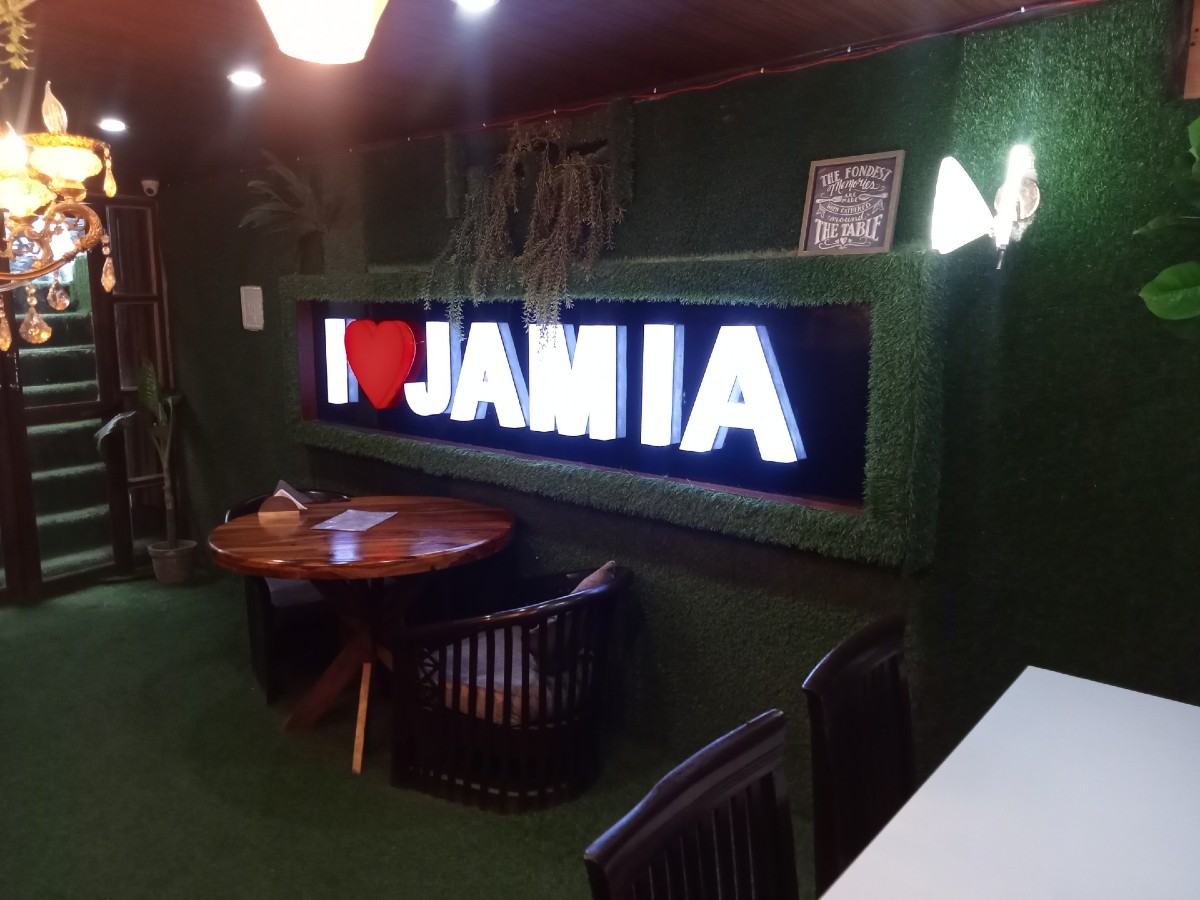“It’s a black-listed area. You see these tall buildings here? They were not there when we were kids. I would go and spend my evenings near Yamuna with my friends. Now, it is all dirt and crowd, and Yamuna is no longer a river but a naala (large drain),” laments a tea-seller of Azim Dairy, known as the most “notorious” street in Batla House, and narrates how the need to live in a secure environment drove the Muslim population to this corner of the Capital.
With population came business opportunities. Young entrepreneurs learnt from the “outside world” and started their own ventures – especially food joints. The area is well-known for famous outlets of traditional food like Jawed Ki Nahari, Gulawati Kebabs, Salman’s Chicken Tikka and Al-Umar’s Chicken Korma. However, the new cafes and restaurants in the area have diverse options in their menus – from international food items to personalised recipes – and cater to a wider audience: college students, school children, working professionals and families.
The most telling example of how modern food joints sprang up in the area is Halal Pizza Fun. Named thus in consideration of the largely Muslim population of the area, the eatery started almost 12 years ago in an obscure basement that opened to a street.
Also read: Bourgeois pleasure: Delhi’s Soviet-era bookstore
“We wanted to make it look like restaurants in posh localities. People here do not tend to go out of the locality to eat because of multiple reasons, so we wanted to give them the same ambience here. This is how the idea struck,” says Imran Khan, the 32-year-old owner.
The pizza restaurant is loved by students and families alike. The menu is designed in such a way that even those who cannot afford a pizza in American pizza chains can enjoy one here.
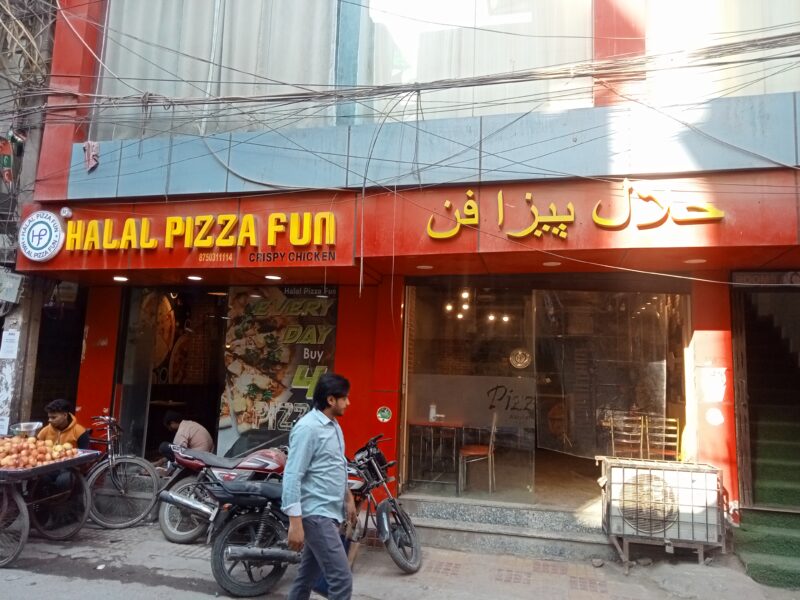
“We come here because it is cheap and tasty and we also don’t feel alienated here,” says Sonu, a class 10 student, as he munches on a pizza slice with his friends.
The restaurant gradually grew and now has 12 outlets in Delhi and a couple of neighbouring states.
Apart from the outlets in Delhi — Shaheen Bagh, New Friends Colony and Tikona Park – it has spread to Noida, Sambhal and Moradabad in Uttar Pradesh, and some towns of Rajasthan.
Elaborating on the marketing strategies specific to Jamia Nagar, Imran says, “Our outlets outside of Jamia Nagar and nearby Muslim areas are called Pizza Fun. We named it Halal Pizza Fun here as people are doubtful of the meat used in multinational food chains (whether it is halal or not).”
Interestingly, almost all the food joints in the area follow the same marketing mantra: Urduisation or Arabicisation of Roman names (Shake turned into Sheik) or a prefix like ‘Al’ suggesting Muslim-friendly attitude.
Fauziya Iftekhaar, however, believes that she did not name her restaurant in order to draw visitors. Situated in Tikona Park, Ila Rooh is an elevated cafe with attractive white interiors and a pleasant atmosphere. It is also perhaps the only restaurant owned and run by a woman.
A marketing and PR professional, Fauziya says that she never faced any challenge as a businesswoman in the locality. “My family supported me and that is all that matters. To run a cafe, your priority should be the quality of food. All the recipes at Ila Rooh are personalised recipes that I have tried at my home,” she says.
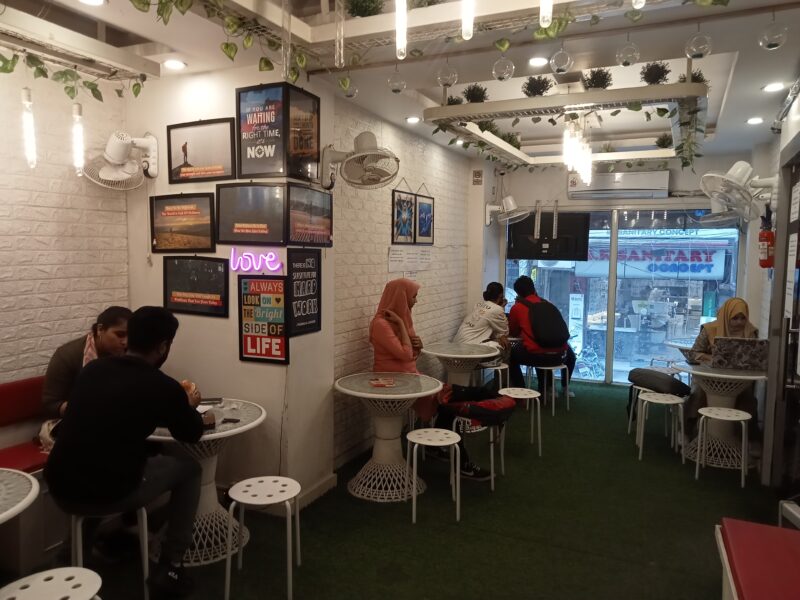
While some are offering personal recipes, others are bringing international flavours to the locality.
The Debonairs Pizza – namesake of South African food chain Debonairs Pizza – was inaugurated a few months ago. The owner is a trained chef, who has worked in Dubai’s Debonairs, and his menu includes specialities like triple-decker and double-stacked pizzas that are not available in the market.
“A lot of people, mostly students, come here from small towns. I wanted to bring the international taste to their tables. This is the reason I chose this place,” he says.
Jamia Nagar constitutes one of the largest concentration of Muslim population in Delhi, along with Seelampur and Old Delhi. However, as scholar Laurent Gayer observes in his study Safe and Sound: Searching for a “Good Environment” in Abul Fazl Enclave, Delhi, it is in no way representative of Delhi Muslims at large, as people here are better educated and have easier access to government jobs.
This is one of the reasons why almost all the restaurant owners in Tikona Park have the same target audience: students and working professionals. Nearby Jamia Millia Islamia serves as another business opportunity as students show up there in large numbers.
“My department was not on the main campus of the university and Tikona Park is the only accessible place I could visit to have a few bites. This is when I was in college a few years ago. Now, so many cafes have come up that it is even difficult to decide where to visit,” says an ex-student of Jamia Millia Islamia while working on her laptop in one of the cafes.
As expected, many owners are trying to lure the students of the university. At 4B Cafe and Restaurant at Okhla Head, students of Jamia are offered a 10% discount. The interiors have a big LED sign board that says “I Love Jamia”.
Not only university students, but those who come to prepare for competitive exams at nearby coaching institutes are also targeted. Syed Azeem, owner of Zaika-e-Awadh and Cocoberry outlet, has a menu designed especially for students. Manager Waseem tells Patriot that they opened a Cocoberry franchise here because the brand is famous and student-friendly.
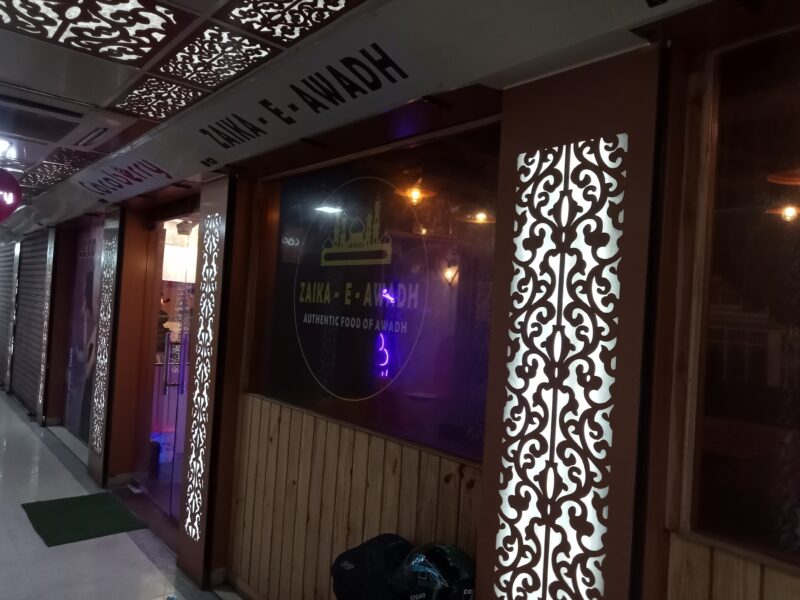
“Once the students started to notice our restaurant, we opened Zaika-e-Awadh in the same shop. It was all pre-planned. Cocoberry is a big chain so we did it in order to have some attention first and then introduced our own venture,” Waseem explains.
To make things more youth-friendly, young entrepreneurs have opened rooftop cafes that particularly cater to couples, and at times, families.
Asked about the growing number of cafes in the locality, the owner of The Eden Cafe Rooftop, remarks, “Almost all the businesses – at least here – have come to a halt. Only three are doing well: real estate, clothes and food joints. Real estate needs money and clothes are seasonal, so food remains the only constant. And what’s a better place to start a food business than a youth-friendly and recently gentrified area?”
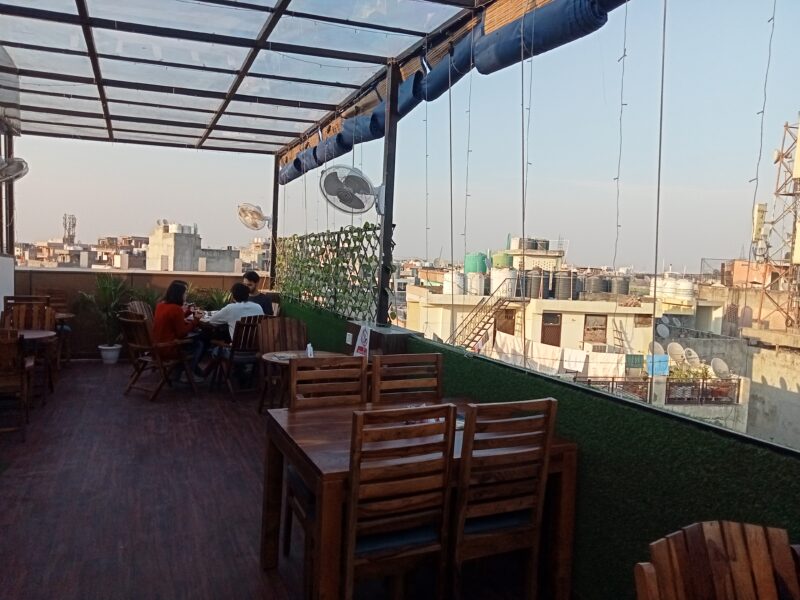
Three kilometres away, Cafe Karavan in Shaheen Bagh, remains a much-loved place for people wanting to enjoy an evening under the open sky. The cafe was founded by a journalist, Asad Ashraf, and is well-known among the intellectual circles of the city. It has kept alive the tradition of chaikhanas – where intellectual conversations among the middle-class once occurred — but with a modern twist.
Follow us on:
Instagram: instagram.com/thepatriot_in/
Twitter: twitter.com/Patriot_Delhi
Facebook: facebook.com/Thepatriotnewsindia

